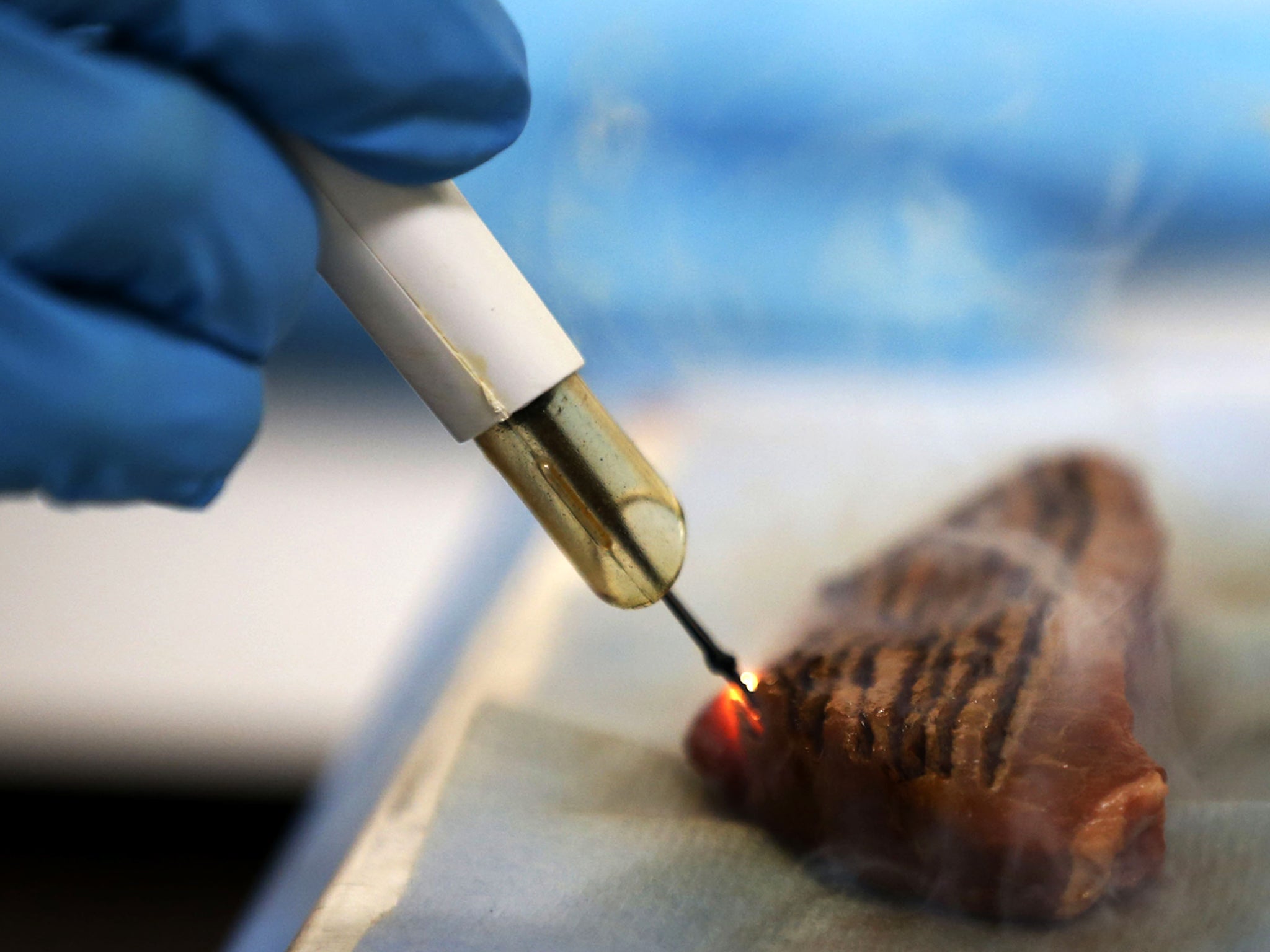Surgical 'smart' knife that detects tumours could curb spread of cancer

Your support helps us to tell the story
From reproductive rights to climate change to Big Tech, The Independent is on the ground when the story is developing. Whether it's investigating the financials of Elon Musk's pro-Trump PAC or producing our latest documentary, 'The A Word', which shines a light on the American women fighting for reproductive rights, we know how important it is to parse out the facts from the messaging.
At such a critical moment in US history, we need reporters on the ground. Your donation allows us to keep sending journalists to speak to both sides of the story.
The Independent is trusted by Americans across the entire political spectrum. And unlike many other quality news outlets, we choose not to lock Americans out of our reporting and analysis with paywalls. We believe quality journalism should be available to everyone, paid for by those who can afford it.
Your support makes all the difference.A surgical knife that can detect when it is cutting through cancerous tissue is being tested in hospitals, raising hopes that the spread of cancer left behind after surgery could soon be curbed more successfully.
The device helps surgeons by indicating exactly which tissue to remove from a patient, reducing the need for repeated surgery. During an operation electrosurgical knives are used to cut and cauterise blood vessels. The device works by sucking the smoke this process creates into a mass spectrometer, which indicates whether the cut tissue is cancerous or healthy.
While surgery is often the best hope of a cancer cure, more than 20 per cent of the cancerous tissue may be left behind under current procedures.
“This could be a real game-changer for tumour resection surgery,” said the knife’s inventor, Dr Zoltan Takats, from Imperial College London.
As well as potentially improving cancer survival, the device could save thousands of pounds per patient by cutting the cost of lab tests and follow-up operations. A customised version of the “iKnife” is being tested at St Mary’s, Hammersmith and Charing Cross hospitals in London.
In an early study, the knife identified malignant tissue in cancer patients undergoing surgery with 100 per cent accuracy. Results of the preliminary study, involving 91 patients with cancers, are reported in the journal Science Translational Medicine. Lord Darzi, Professor of Surgery at Imperial College, said: “In cancer surgery, you want to take out as little healthy tissue as possible, but you have to ensure that you remove all of the cancer.”
A company called Medimass has been set up to develop the device commercially. Dr Takats, one of its founders, said the team hoped to be able to secure a partnership deal with a “big industrial player” to produce and distribute the iKnife.
Modified versions of the device could have a number of non-medical applications, including food testing. “We’ve already shown that it can distinguish between horse meat and beef, and it works on cooked as well as raw meat,” Dr Takats said.
Join our commenting forum
Join thought-provoking conversations, follow other Independent readers and see their replies
Comments